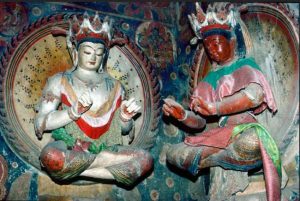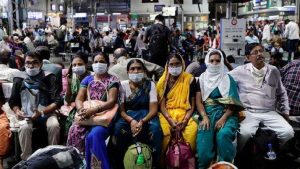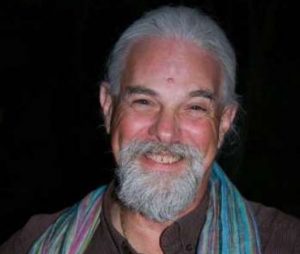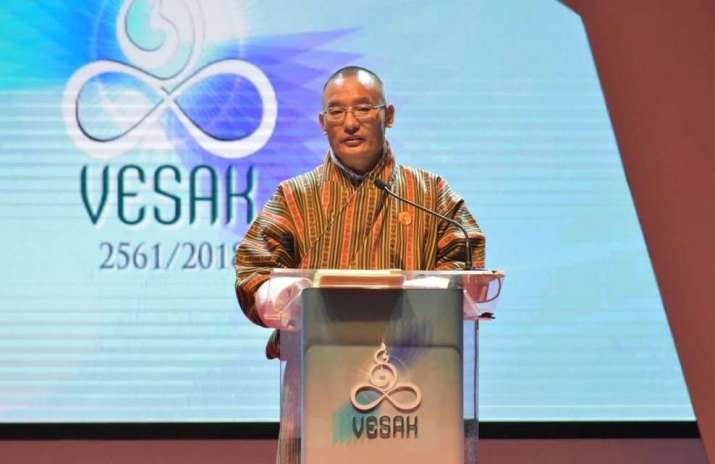
As the United Nations marked the international Day of Vesak under the theme “Buddhist Contribution for Human Development,” in Thailand this month, the prime minister of Bhutan, Lyonchhen Dasho Tshering Tobgay, was invited to provide the keynote address for the Buddhist celebration, in which he spoke in detail on the growing need for global change founded in Buddhist values and based on a sustainable, holistic approach to development for the benefit of all sentient beings.
The proceedings for the 15th Conference of the United Nations Day of Vesak were held from 24–27 May at Mahachulalongkornrajavidyalaya University (MCU), in the ancient Siamese capital of Ayutthaya, and at the United Nations Conference Centre in Bangkok. Tshering Tobgay joined an illustrious lineup of speakers that included, among many others, His Holiness Somdet Phra Ariyavangsagatayana, the supreme patriarch of Thailand; Dechen Tsering, regional director of UN Environment in Asia and the Pacific; Ven. Seck Kwang Phing, president of Singapore Buddhist Federation; and Ven. Prof. Jing Yin, professor and doctoral supervisor of Nanjing University, executive director of the Institute of Buddhist Culture of China, and honorary director of the Buddhist Association of China.
“Buddhism has influenced both the governance and its leadership in our country [Bhutan], and through these two institutions affected human development,” Tshering Tobgay observed in his address, noting that Buddhist values toward the environment and the wellbeing of sentient beings had been instrumental in shaping Bhutan’s national development and in maintaining a high level of ecological sustainability. “In the case of Bhutan, Buddhism has moulded our citizens’ attitude to the environment and animals,” he noted. “Bhutan is one of the world’s smallest countries, but it has undertaken one of the world’s heaviest commitments to conservation.” (YouTube, Kuensel)
While Bhutan, a small Vajrayana Buddhist nation nestled in the foothills of the Himalayas between India and China, has a population of just 780,000 people, the country has significant experience in maintaining the delicate balance of managing economic growth in a sustainable manner, famously encapsulated in its conservative Gross National Happiness (GNH) approach to national development. While challenges remain, Bhutan has already recorded numerous successes on this front, notably by becoming the world’s first and only carbon-negative country.*
Tshering Tobgay emphasized the direct relevance of the Buddha’s teachings on ethics to the field of human development. “According to Vajrayana Buddhism followed in Bhutan, human beings’ [understanding] of themselves occurs through three gateways of experience: through their body, mind, and speech,” he explained. “The Lord Buddha’s teachings about behavioral, verbal, and mental actions that lead to happiness and well-being are the main basis of human development in Vajrayana Buddhism. Human development depends on advancement in these three dimensions of experiences.” (Kuensel)
The remote Himalayan kingdom has achieved international renown for its GNH philosophy. While not opposed to material development or economic progress, GNH rejects the commonly held view of economic growth as the ultimate good, instead seeking to cultivate a holistic approach to balanced development and societal well-being, emphasizing sustainability, conservation, and translating cultural and social priorities into developmental goals to create a happier, more equitable society.
“Buddhist education and development are intended to enable people to have . . . True Knowledge through the ability to see reality correctly. In this respect, the Buddhist education is a process of overcoming the three poisons of greed, aggression, and delusion,” the Bhutanese premier said. “But dealing with the thee poisons is no longer an individual issue. Buddhist social critics have pointed out that we have reached a stage of institutionalizing greed, aggression, and delusion through business cooperations, weapons production systems, and misleading media and advertising.” (YouTube)
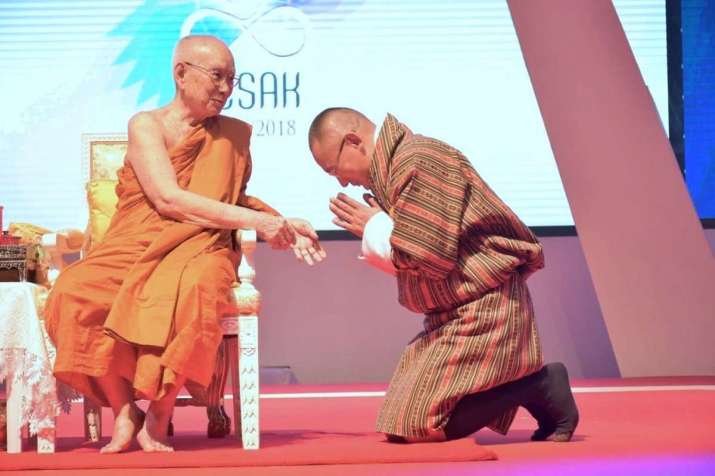
In his concluding statement, Tshering Tobgay underscored the difficult challenges facing the world today, citing “the arms race, ecological collapse, climate change, addiction, inequality, unfairness, conflicts, and the technological and institutional domination of human beings.”
“Yet as Buddhists we should remind ourselves that no situation is ever permanent and that it can be turned around,” he said. “Buddhism has ever more to contribute to holistic development for all, and all for holistic development. We are all in a flux of direction, and that direction can be maintained by the threefold qualities of prajna, or wisdom, samadhi, or concentration, and sila, or moral clarity, in each and every one of us.” (YouTube)
Vesak, also known as Buddha Purnima, or more informally Buddha’s Birthday, commemorates the birth, enlightenment (sopadhishesa-nirvana), and passing from this world (mahaparinirvana) of the historical Buddha, Shakyamuni. The occasion is a public holiday in many countries in Asia and is observed by millions of Buddhists all over the world. The UN General Assembly first officially recognized Vesak as an international observance in 1999 and the first celebration was held at the UN headquarters in 2000. The official Vesak observance in Thailand this year falls on 29 May.
During his official visit to Thailand from 25–26 May, the Bhutanese prime minister also called on the leader of Thailand’s military junta, General Prayut Chan-o-cha, and discussed growing bilateral relations between the two kingdoms.
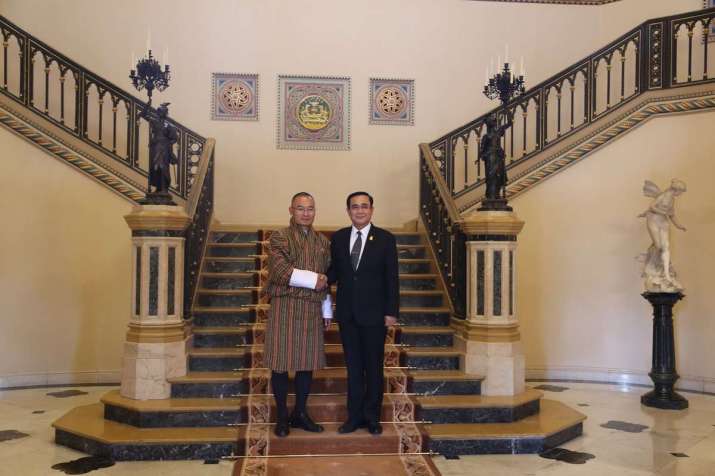
Almost 75 per cent of Bhutan’s population identify as Buddhists, according to data for 2010 from the Washington, DC-based Pew Research Center, with Hinduism accounting for the majority of the remainder. Most of Bhutan’s Buddhists follow either the Drukpa Kagyu or the Nyingma school of Vajrayana Buddhism. Thailand is also a predominantly Buddhist country, with 93.2 per cent of the nation’s population of 69 million identifying as Theravada Buddhists. The country has more than 40,000 Buddhist temples and some 300,000 monks.
* Bhutan’s conservation policies and high level of forest cover means that not only has the kingdom met its pledge to remain carbon neutral, it is one of the Earth’s rare but essential carbon sinks, with its forests absorbing more carbon dioxide than the country produces.
See more
Buddha’s teachings on ethics have direct relevance to human development, says PM in his address at the UN Day of Vesak Celebration in Thailand (Kuensel)
THE 15th UNITED NATIONS DAY OF VESAK CELEBRATIONS 2018
United Nations Day of Vesak Celebration 2018 (Facebook)








